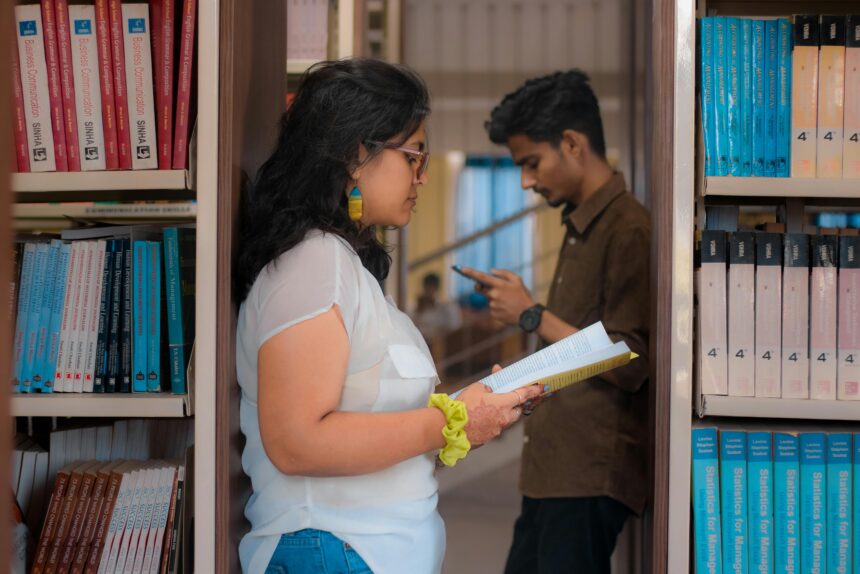A Heavy Bag, Heavier Minds
In Indian schools, the sight of students carrying heavy backpacks laden with textbooks, notebooks, and assignments is all too common. While the physical strain of lugging these bags has long been discussed, the mental weight of an overburdened syllabus is an even more pressing concern. Are Indian students being pushed to their limits by an education system that prioritizes quantity over quality?
The Numbers Don’t Lie: A Packed Curriculum
From a young age, Indian students are introduced to a sprawling curriculum that covers a broad spectrum of subjects. The syllabus is designed to prepare them for competitive exams, but its sheer volume leaves little room for creative thinking or exploration. Long hours of school, followed by tuitions and homework, make for a grueling daily routine, with students often left with no time for leisure or personal development.
The focus on covering an exhaustive syllabus can lead to shallow understanding, where students memorize facts instead of grasping concepts. This “mile-wide, inch-deep” approach raises the question: are students truly learning, or are they just ticking boxes?
Rote Learning: A Byproduct of an Overloaded Syllabus
One of the unintended consequences of an overloaded syllabus is the perpetuation of rote learning. With limited time to explore topics in depth, students are often encouraged to memorize answers rather than engage with the material critically. This not only hampers their ability to think creatively but also leaves them ill-equipped to apply their knowledge in real-world situations.
The overemphasis on marks further exacerbates this issue, with both teachers and parents pressuring students to prioritize grades over genuine understanding. The result? Students may score well in exams but struggle to develop the skills necessary for higher education and careers.
Mental Health Toll: The Hidden Cost
The stress of keeping up with an overloaded syllabus has far-reaching implications for students’ mental health. Anxiety, burnout, and even depression are becoming increasingly common among schoolchildren, with the pressure to excel weighing heavily on their young shoulders.
According to a 2021 report by the National Crime Records Bureau (NCRB), academic stress is one of the leading causes of student suicides in India. The numbers are a grim reminder that an overburdened syllabus is not just an academic issue—it’s a public health crisis.
Global Comparisons: What Are Other Countries Doing?
Countries like Finland, known for their progressive education systems, offer a stark contrast to India’s syllabus-heavy approach. Finnish schools focus on fewer subjects but delve deeper into each one, encouraging critical thinking and hands-on learning. The emphasis is on quality, not quantity, with students enjoying shorter school days and less homework, yet consistently performing well in global education rankings.
In Singapore, another high-performing country, the curriculum is designed to strike a balance between academics and life skills. Students are encouraged to participate in extracurricular activities and community service, fostering holistic development.
Can India learn from these models to create a more balanced and effective education system?
Parents and Teachers: Caught in the Crossfire
The impact of an overloaded syllabus isn’t limited to students—it affects parents and teachers as well. Parents often feel compelled to enroll their children in multiple tuitions to help them cope with the syllabus, adding financial and emotional strain to families. Teachers, on the other hand, face the challenge of completing the curriculum within tight timeframes, leaving little room for innovative teaching methods.
This system creates a vicious cycle where everyone involved feels the pressure to meet unrealistic expectations, often at the expense of genuine learning and well-being.
The Role of Technology: Friend or Foe?
While EdTech platforms like BYJU’s and Unacademy have gained popularity for helping students tackle their syllabi, they also highlight the growing dependency on supplementary learning. These platforms often emphasize test preparation, reinforcing the idea that education is about acing exams rather than gaining knowledge.
However, technology also holds the potential to transform how the syllabus is delivered. Interactive content, gamified learning, and adaptive teaching methods can make even complex topics more engaging and less overwhelming. The key lies in using technology to enhance understanding rather than merely amplifying the existing pressures.
The National Education Policy (NEP) 2020: A Glimmer of Hope
The National Education Policy (NEP) 2020 offers a roadmap for addressing some of these challenges. It advocates for reducing the curriculum to core essentials, allowing students to focus on understanding fundamental concepts rather than memorizing vast amounts of information. The policy also emphasizes multidisciplinary learning, critical thinking, and vocational skills, aiming to create a more balanced and relevant education system.
While the NEP’s vision is promising, its success will depend on effective implementation and consistent monitoring across India’s diverse educational landscape.
What Needs to Change?
- Streamlining the Syllabus: Focus on core concepts rather than attempting to cover everything. Depth should take precedence over breadth.
- Promoting Experiential Learning: Encourage project-based learning, fieldwork, and hands-on activities to make education more engaging and practical.
- Prioritizing Mental Health: Integrate mental health support into schools, with counselors and workshops to help students manage stress.
- Teacher Training: Equip educators with the tools to adopt innovative teaching methods that go beyond the textbook.
- Parental Awareness: Educate parents about the importance of holistic development, reducing the obsession with grades and rankings.
Conclusion: Learning, Not Just Passing
The Indian education system is at a crossroads. While an overloaded syllabus might prepare students for exams, it does little to prepare them for life. By reducing the emphasis on quantity and fostering a culture of critical thinking and creativity, India can create a generation of learners who are not just academically competent but also emotionally resilient and socially aware.
It’s time to lighten the load—not just the backpacks, but the minds carrying them. After all, education should be about empowering students to explore, innovate, and grow, not just survive the syllabus.


Leave a Reply